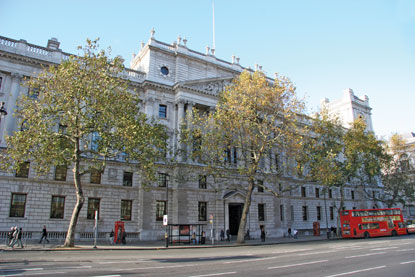By Mark Smulian | 31 July 2013
Better parliamentary scrutiny of Revenue & Customs is needed to restore lost public trust in the tax system, a House of Lords inquiry has found.

Peers on the economic affairs committee today said that tax avoidance by multinational companies was too easily carried out and ‘this damages the economy and undermines trust in the tax system’, bringing it into disrepute.
‘There needs to be better parliamentary oversight of HMRC, so that the public can be confident that tax deals it agrees with multinational companies are appropriate,’ the report Tackling corporate tax avoidance in a global economy: is a new approach needed? said.
‘The committee is concerned that HMRC may not be assertive enough in these negotiations.’
Its proposed solution was a joint committee of MPs and peers which could if necessary take evidence in private to avoid claims by HMRC that it could not be held to account over individual deals because of the confidentiality of companies’ tax negotiations.
Committee chair Lord MacGregor said: ‘It is important that the public are confident that Parliament is doing its job in scrutinising the tax authorities.
‘We were concerned that HMRC’s duty of confidentiality to taxpayers limits scope for parliamentary oversight of HMRC’s dealings with multinationals.’
Under the proposal, HMRC would be required to give the new committee private access to the details of individual settlements with multinationals ‘so as to provide effective parliamentary oversight of HMRC while maintaining taxpayer confidentiality’.
MacGregor said: ‘There is a sense that corporation tax is voluntary for some multinationals which operate globally while small UK-based businesses go by the book and have to pay.
‘That brings the tax system into disrepute and loses much-needed revenue.’
He added that large firms should be required to publish a summary of their tax returns ‘so the public and media and ensure they are paying their fair share’.
HMRC needed staff of sufficient quality to take on corporate tax advisers and should be better resourced to allow it to do this, the report said.
The committee urged HMRC to end its practice of using staff seconded from leading accountancy firms to help design taxes.
‘The risks are two-fold: that those on secondment will not have any incentive to design robust, hard-to-avoid taxes, and that when they return to private practice they will be better placed to advise how to exploit loopholes,’ the report said.
‘We recommend that the Treasury and HMRC should be better resourced to design and implement taxes, without undue dependence on short-term professional advisers.’
The committee supported the fundamental reform of the international corporate tax framework being pursued in the Organisation for Economic Co-operation and Development, as there were ‘too many opportunities for multinational companies to manipulate their affairs to reduce their global tax payments’.
It called on the Treasury to undertake a similar review of the UK’s corporate tax regime, including the differential treatment of debt and equity.
‘The present system can encourage multinational companies to take on excessive debt in the UK, including by borrowing money from an overseas subsidiary, to reduce their tax liability,’ it warned.






















